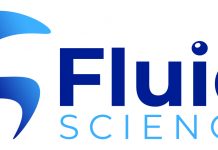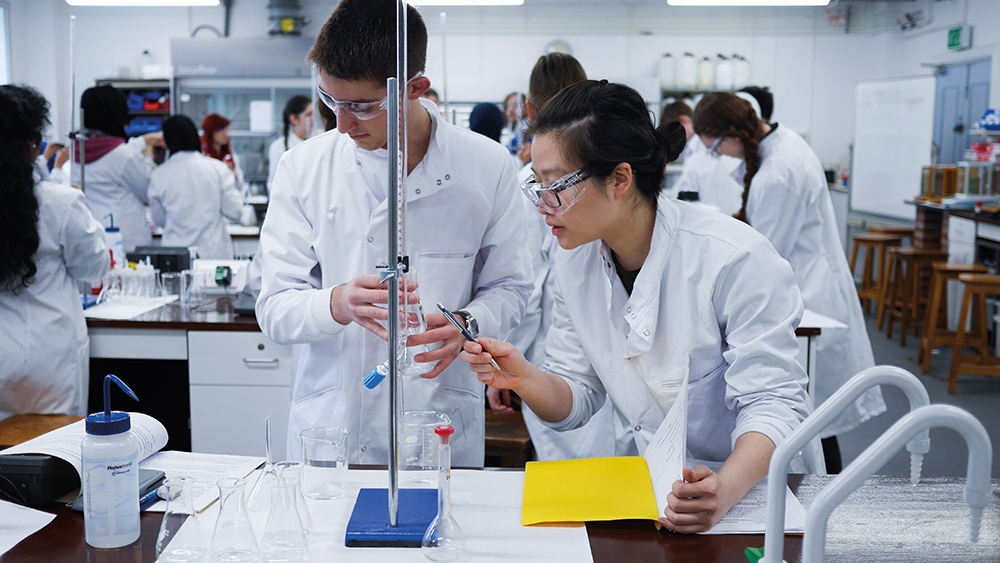Chemistry graduates are among those reaping the rewards of University-Industry collaborations backed by GlaxoSmithKline.
Third year undergraduates and fourth year MSci Chemistry students in the School of Chemistry at The University of Nottingham are taking two new modules sponsored by GlaxoSmithKline to help train ‘research and industry ready’ graduates.
In turn, the final year students have discovered a new series of compounds that could provide a starting point for future optimisation work leading to a treatment for a chronic respiratory illness.
Conceived in 2010 as a module for 3rd year undergraduates that was taught by Dr Jonathan Fray, in 2011 the collaboration was extended to a Drug Discovery research project for final year students.
Over the past five years, 50 students have participated in ongoing research to discover a new treatment for Idiopathic Pulmonary Fibrosis (IPF), a life-threatening lung disease. Preliminary results have already been published in leading academic journals.
The research is co-led by Dr Simon Macdonald, a Director of Medicinal Chemistry in the Fibrosis and Lung Injury Discovery Performance Unit at GSK and a visiting professor at The University of Nottingham.
It is carried out in partnership with Thomas McInally, a Business Science Fellow at The University of Nottingham and Dr Andrew Nortcliffe a GSK Teaching Fellow.
Each year a group of 10 final-year undergraduates are taught how to analyse and use the Structure Activity Relationships generated in the project to design novel compounds. Synthetic chemistry is subsequently carried out over two 10-week terms and biological and physicochemical screening data of the new compounds is generated by GSK.
The organisers of the programme say that giving the students a unique insight into the pharmaceutical industry will equip them with the scientific and team-working skills required for their future careers.
Thomas McInally,, Research Fellow in the School of Chemistry, said: “The project gives students first-hand experience of the processes used by scientists in the pharmaceutical industry to design and synthesise potential new drugs.
“They truly appreciate that staff from GSK come regularly to the university to teach modern drug discovery principles to ensure that the research being done is truly reflective of the real-world situation.
“The project has many challenges both for students and staff. However, the fact that we have identified a series of novel compounds that may provide potential leads for IPF is a tremendous achievement. It is testimony to the professionalism of everyone concerned and to the spirit of the initial concept. I am sure that both of these collaborative projects will be viewed as a great success for both GSK and the University and they have led to similar undergraduate projects in other schools.”
Dr Mcdonald said: “Through lectures, workshops and mentoring, our partnership with The University of Nottingham is helping students to gain a solid grounding in the chemistry of drug discovery. It is critical that we nurture the next generation of medicinal chemists, to ensure a future talent pool that is highly motivated and equipped to take on the drug discovery challenges of tomorrow and play their part in developing new medicines for patients.”











